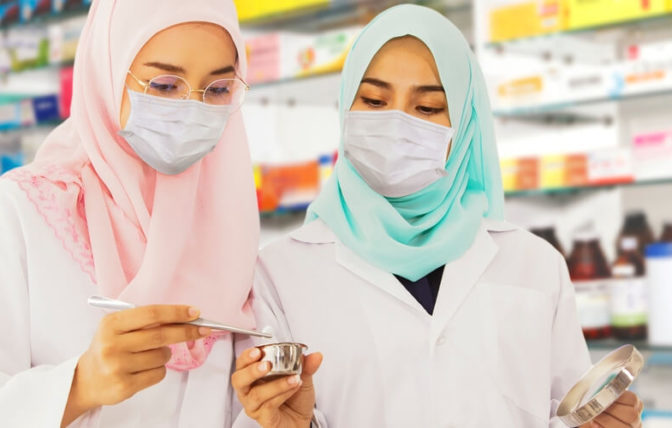
 "
"

 "
"

The need for a halal pharmaceutical industry has increased exponentially over the years. This is due to the fact that more Muslims are now looking out for halal certified drugs in the markets. As Muslims, it is necessary to check and confirm that the pharmaceutical product being bought should not only be Halal but should also be judged clean according to Shariah law. As such, Muslims who are directly engaged in manufacturing, distributing, dispensing, and prescribing medications are responsible for ensuring that pharmaceutical products are Halal and Tayyib. The halal pharmaceutical industry has also risen due to the fact that there is an increasing number of Muslims are living outside of Muslim countries, in turn exposing non-Muslims to the halal certified products. These halal products have also seen a great benefit to consume, and non- Muslims view them as transparent, healthier, and more ethical alternatives.
Statistics have shown that the Muslim spend on pharmaceuticals increased by 2.3% from $92 billion in 2018 to $94 billion in 2019. However, due to the COVID-19 crisis, Muslim spend decreases. A recovery expected from 2019 levels to the year 2021. Muslim consumer spending in the pharmaceutical sector is expected to increase at a CAGR of 2.3% from 2019 onwards to reach $105 billion by 2024.
Governments around the world have made calls for more pharmaceuticals to be manufactured locally, to avoid being negatively impacted by supply chain issues in the event of future pandemics.
The Malaysian International Trade and Industry Minister Datuk Seri Mohamed Azmin Ali says, “There is an Islamic tradition which encourages the search for knowledge through great efforts in research and development in Halal medicine and pharmaceuticals, particularly in the field of vaccines. As such, we should see an exponential growth in this sector, not only in the Muslim countries but also the rest of the world,”.
New information has shown that companies are creating joint ventures around the world. The Indonesian market is seen particularly as a more popular market to enter, as it is currently one of the biggest halal markets in the world. New markets that have not been in the halal industry before are seen to be interested. South Korea as one such country, has shown great interest in joining the halal industry in the recent years. Companies such as Daewoong Pharmaceutical Co’s are in the process of joint venture with Indonesia’s Infion to obtain halal certification from MUI for their biosimilar Epodion which is a new treatment for anemia and related kidney problems. Another company, the South Korea’s CKD (Chong Kun Dang Pharmaceutical Corp.) has now received halal certification after a joint venture between and Indonesia’s Otto to create plant manufacturing anti-cancer drugs run by CKD-OTTO.
Established players that have previously been in the industry are also entering the halal pharmaceutical and medical devices sector. Swedish medical technology company Bactiguard acquired Vigilenz, a Malaysian medical device firm, which has seven products that have been halal-certified by JAKIM. Moreover, the Brazilian arm of German lubricant manufacturer Fuchs received halal certification and has plans to sell to the pharmaceutical sector. These increasing collaborations are bringing positive viability to the halal pharmaceuticals industry. Collaborations particularly in Southeast Asia, are seen to be improving the halal pharma ecosystem, including guidance on prescriptions, raising awareness among physicians, and developing pharmaceutical expertise and resources.
Indonesia, Turkey, and Pakistan are found to be the top Halal consumer markets in the world currently, while Brazil, the USA, Australia, New Zealand, and India are the top Halal meat exporters to OIC countries. The market forecast indicates that the global Halal market has an incredibly optimistic future, not only as demonstrated by a projected significant increase in the global Muslim population, but also due to the trend for numerous multinational corporations to expand their product availability of Halal consumables. In turn an increasing demand for access to the transparent, clean, and ethical nature of Halal food, cosmetics, pharmaceuticals will change the landscape of the Halal products industry from niche to mainstream in just a few years’ time.